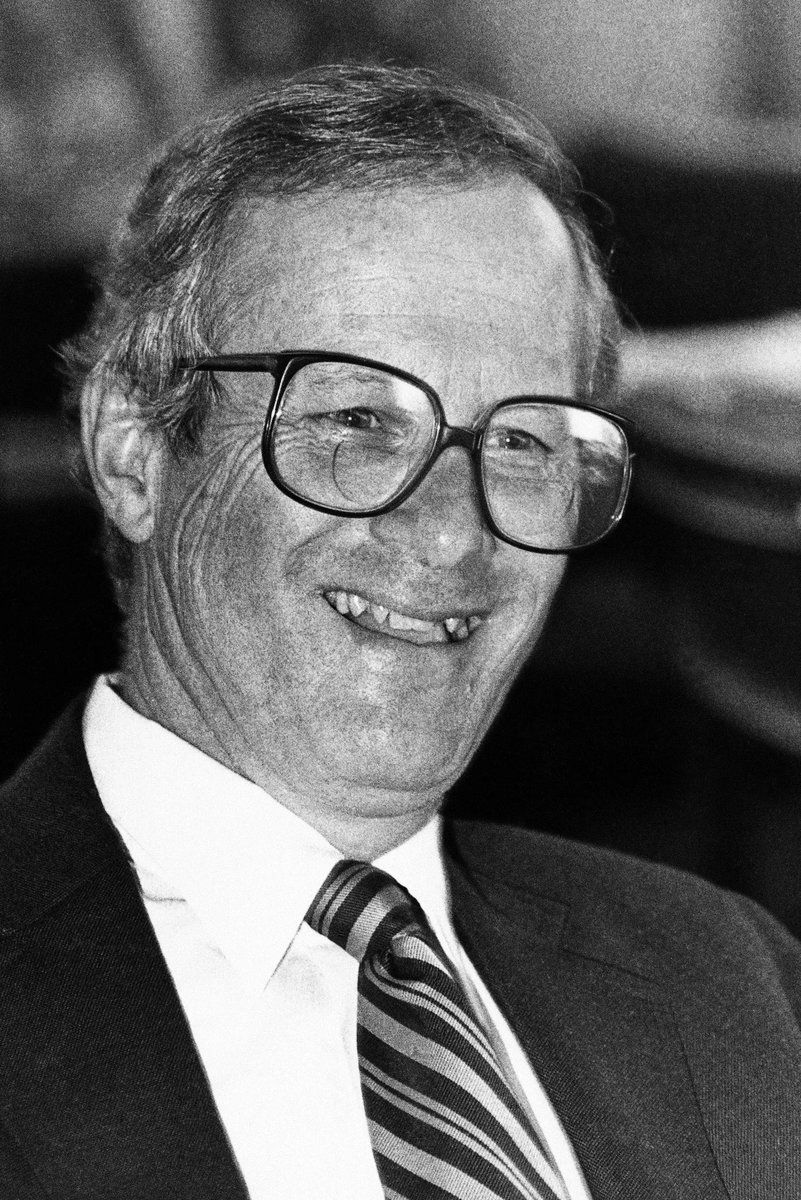
.@SteveKerr has had a remarkable career — from player to commentator to coach.
What you may not know about is how basketball helped him cope with tragedy in his personal life.
Here's his story 👇
What you may not know about is how basketball helped him cope with tragedy in his personal life.
Here's his story 👇

Kerr was a freshman in his Arizona University dorm room when he received the phone call that would change his life.
A family friend was calling in the middle of the night to tell Kerr that his father had been killed.
A family friend was calling in the middle of the night to tell Kerr that his father had been killed.

His dad, Malcolm Kerr, had been the president of the American University in Beirut when he became the victim of a terrorist attack.
He was shot in the back of the head by two gunmen outside of his office.

He was shot in the back of the head by two gunmen outside of his office.


"My phone rang at my door at 3 a.m, so I knew something was up and [a family friend] said 'Steve, I have terrible news,'" Kerr says. "Basketball was the one thing I could do to take my mind off what happened. So I went to practice the next day. I didn't know what else to do."
For Kerr, basketball served as an escape from the grief.
He was the only one of his siblings who did not fly to Beirut to attend the memorial service.
Instead, he went to practice & played against Arizona State, in which he had a breakout game helping guide the team to victory.
He was the only one of his siblings who did not fly to Beirut to attend the memorial service.
Instead, he went to practice & played against Arizona State, in which he had a breakout game helping guide the team to victory.

"It sounds bad,” Kerr said. “Obviously, the basketball wasn’t more important. But the logistics were really tricky. And it was cathartic for me to just play.”
Kerr went on to have an illustrious career after 15 years in the NBA, playing alongside Michael Jordan for the Chicago Bulls & winning a total of 5 championships as a player.
After retiring in 2003, Kerr became a TV analyst, then served as GM of the Phoenix Suns from 2007-10.
After retiring in 2003, Kerr became a TV analyst, then served as GM of the Phoenix Suns from 2007-10.

Then, he embarked on a new chapter that would give him a voice and a national platform.
He began his coaching career in 2014 when he became the head coach for the Golden State Warriors.
He began his coaching career in 2014 when he became the head coach for the Golden State Warriors.

It was there that people began to see Kerr continuing the legacy that his father left behind.
Although he rarely talks about his dad's death, he has used his platform to speak out on political issues such as gun violence, governmental shortcomings, and non-violent protests.
Although he rarely talks about his dad's death, he has used his platform to speak out on political issues such as gun violence, governmental shortcomings, and non-violent protests.
Kerr doesn't view basketball as entertainment — he sees it as the thing that helped him cope during the darkest period of his life.
The way he runs his team and the values he instills in his players is a direct result of what he learned from his father at a young age.
The way he runs his team and the values he instills in his players is a direct result of what he learned from his father at a young age.
Tragedy changed Kerr in a way that he doesn't take for granted.
"We all have to deal with tragedy at some point in our lives, but when it happens early in your life — for me it was at 18 — it gives you better awareness of how fragile everything is," he says.
"We all have to deal with tragedy at some point in our lives, but when it happens early in your life — for me it was at 18 — it gives you better awareness of how fragile everything is," he says.
Here's what we can learn about empathy, joy, and values-driven leadership from Kerr's brilliant coaching style.
Read more:
theprofile.substack.com/p/steve-kerr
Read more:
theprofile.substack.com/p/steve-kerr
• • •
Missing some Tweet in this thread? You can try to
force a refresh








